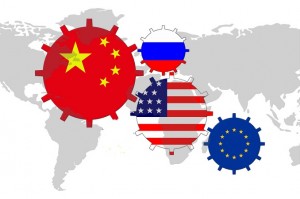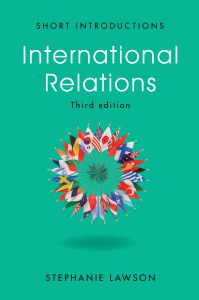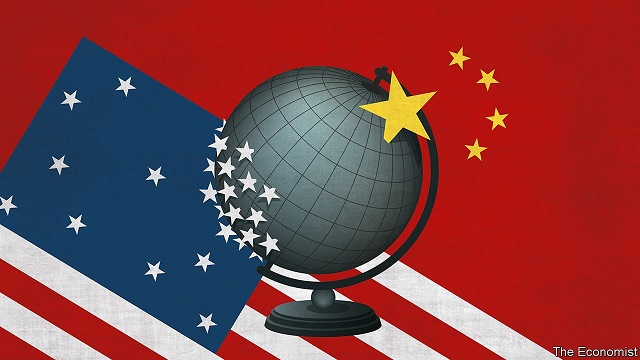Understanding the International System
International Relations is becoming increasingly relevant as the world grows more and more interconnected through trade and commerce, migration, the internet and social media, as well as through concerns about pressing global environmental problems. As a field of study, International Relations addresses international political economy, global governance, intercultural relations, national and ethnic identities, foreign policy analysis, development studies, environment, international security, diplomacy, terrorism, media, social movements and much more. Studying International Relations can help to understand the way the world works, and how nations and large international organisations operate.
To understand international relations and its various dynamics, it is important to have a proper understanding of the structure and system in which this whole process of interaction among states and entities takes place. Without discerning the nature of the international system, it is impossible to have a clear, holistic view of world affairs. So, the students of IR and Strategic Studies must have a clear perspective on the nature of the international system so that they could provide an informed and objective analysis on international issues.
The Realist school of thought gives a unique primacy to the international system and international order among the factors defining the nature, characteristics and various dynamics of global politics. Historically, it was the Westphalian sovereignty that practically ruled out any possibility for the states to be governed by any centrally competent authority, the orders of which must be taken by states as obligatory. Although it has now become more systematic anarchy, this nature of the international system is not necessarily a by-product of Peace of Westphalia, 1648. Neorealists count the anarchic structure of the international system as the basis of why the nations act and react the way they do in the international arena. This anarchy has left the states with no other option but to accumulate maximum power and to remain sceptic of the intentions of all; friends and foes alike.
The implications of the prevailing anarchic international system for peace, security and stability of the world are grave. Accumulation of power, realists believe, is the only way to ensure a state’s survival as well as to gain some ‘worth’ for it among the comity of nations. In this structure, no weaker nation is obliged for anything. As there is no morality, no compassion, no legal consideration in international relations for any state, So to remain weaker is the ‘original sin’. Realists, keeping in view the structure, are pessimistic in their opinion about the possibility of a lasting peace among the states.
United Nations was founded in the post-World War II era to avoid any other such human catastrophe in the future. Realistically, this world body was established on the idea that it will function as a world government and will perform as a regulatory authority above states so that any clash of interest among them may not lead to war. However, firstly, it was not a practical idea in a world comprising sovereign nation-states because no state would be willing to surrender its power and interests to any other power or organization. Secondly, the idealism of establishing justice through the UN was even flouted when five great powers – China, France, Russia, the United Kingdom and the United States – were given the veto power in UN Security Council. Further, countless flaws in the UN’s structure make it just a rubber stamp in the hands of big powers, rendering it impotent to resolve the gigantic issues—from Kashmir to Palestine and so on. The UN has repeatedly proved itself a pawn in the hands of its largest donor, the incumbent superpower, the United States. Practically, these powerful countries have no obligations to the UN, howsoever flagrant violators of the UN Charter they might be. So, the realists posit that there is, literally, no real central authority is present on the world stage.
The absence of a higher authority to enforce laws or to regulate relations between and among nation-states means no limit to hostilities. “Troops are abruptly mobilized without apparent warning and – it seems – appropriate justification. Two old foes are suddenly toasting each other in an ancient, decorated conference hall. Rifts, crises and confrontations seem to erupt suddenly.” It’s actually a zero-sum game, all versus all. Alliances are temporary, friendships are uncertain, and convergences are time-bound. The only permanent in this system is a state’s own self; its cherished interests.
Anarchy, however, does not necessarily mean chaos or use of uncurbed violence. There are some ways, per the realists, to have a ‘controlled anarchy’ and to achieve a kind of order and stability in which unrestricted or widespread violence may be avoided. For this, states constitute alliances; formulate regimes for attaining a balance of power. So, despite the absence of any law-enforcing authority in the international arena, a balance of power between rival powers or rival poles can deter them from unleashing misadventures. Then, another way to achieve international stability is through ‘hegemonic stability.’ Understandably, the Hegemonic Stability theory is not averse to the core of realist tradition. In the words of Joshua S. Goldstein, hegemonic stability is “when a hegemon exercises leadership, either through diplomacy, coercion or persuasion; it is actually deploying its ‘preponderance of power’. It means a state’s power or capacity to “single-handedly dominate the rules and arrangements of international political and economic relations.” Both the concepts – balance of power and hegemonic stability – can be better understood through the system of polarity, which, according to experts, is about the number of great powers leading or dominating the global stage. It is the presence of poles or groups of states with distribution of powers on the world stage that depicts where material power is concentrated in the world.
Realists claim that in various historical eras, the nature of polarity mostly drove international system and there is a close, discernable link between the nature of polarity and the world’s stability or instability, war or peace. Polarity identifies the number of actors in the international system as the most important variable in determining the character and direction of global politics. Neorealists assert that the lesser the poles on the world stage, the more stable and peaceful the world. The more the power is distributed, the more clashes of interests and thus more chances of violent confrontations.
There are three types of polarity: multipolarity; bipolarity; and unipolarity; it is necessary to understand these to fully discern the international system.
Multipolar system means the distribution of power among more than two nations or coalitions. In such a system, the power is concentrated in more than two centres. These alliances may be formed for specific purpose and could be time-bound until the cherished collective objective is achieved or becomes irrelevant. The classic example of a multipolar world was the nineteenth-century Europe. Similarly, the world today is also considered multipolar as the power is concentrated in more than two centres.
Bipolar is characterized by two dominant and roughly equally powerful “superpowers” or blocs at the world stage. The Cold War era in which the US and Soviet Union represented two opposite blocs is a typical example of a bipolar world. Though the Soviet Union’s pole was far weaker than the Western one, in discourse that era is labelled as bipolar. Balance of power works best in such a situation as this balance deters the opponent and minimizes incentives for either side to initiate war. That is one of the reasons why the US and Soviet Union never confronted each other during that period despite having a number of serious irritants.
Unipolarity represents a single superpower dominating world affairs. Initial years of post-Cold War era, when China had not yet emerged as a potent power, are considered a US-led unipolar world order. In a unipolar world, according to hegemonic stability theory, world may be more stable as there are no opposing poles and the world is led by a single power that can keep the nations and their interactions under its check. But it depends purely on the hegemon how justly it deals with the various contesting forces on their contending issues.
According to realists, the world is anarchic and nations must act best according to their national interests. Accumulation of maximum power is mandatory for states to sustain in this “lawless” international system. World affairs run smoothly and peacefully when there is a balance of power among various opposing poles or it is dominated by a single hegemonic force that plays the role of a just superpower. A single superpower, as per realism, can work as a world authority if it is a just hegemon and also possesses such a level of powers that it can gain control over the rest of the world.
The writer teaches International Relations at University of Okara and is a noted educationist. Email:mustansar.tasir@gmail.com
 Jahangir's World Times First Comprehensive Magazine for students/teachers of competitive exams and general readers as well.
Jahangir's World Times First Comprehensive Magazine for students/teachers of competitive exams and general readers as well.



